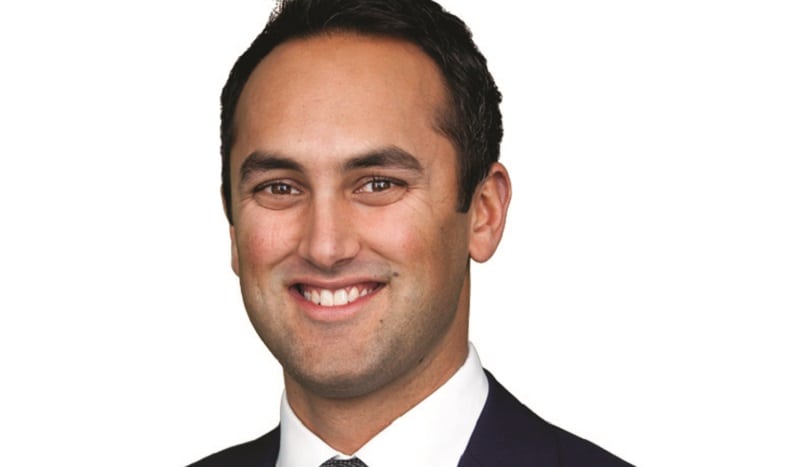DMGT’s stock price dropped 23% on 30 November to a five-year low of 534.5p after it warned of a difficult year ahead.
Full year profit at the publisher fell 13% to £226m while it reported a £112m loss for the year to 30 September as a result of writing-off of three businesses acquired over the last decade.
The stock price has since bounced back to 615p a share, but remains below the 702p on 29 November, the day before the company reported.
But Blake Hutchins, manager of the £80m Investec UK Equity Income Fund, said he remains confident in DMGT, especially with regard to its transition away from traditional print media.
Hutchins (pictured) recently upped his fund’s exposure to DMGT from 1% to 2.4% of the portfolio and has been building the fund’s position since the summer when the stock was up nearly 10%.
He said the impact of November’s fall in share price was less severe in that context and he views the short-term weakness as an opportunity to buy more in the fund.
Hutchins said: “While the new management team is extending the timeline to restructure the business with 2018 likely to be a transition year, we continue to have confidence in the longer term transformation away from legacy print media, into high value add digital and subscription products which represent the majority of group profits.
“This will ultimately result in a higher quality, faster growing and more resilient company. With an attractive, growing dividend, that currently represents an attractive yield, well covered by cash flow and a strong balance sheet.”
Meanwhile, fellow DMGT advocate Nick Train, manager of the £4.7bn Lindsell Train UK Equity Fund, continues to think that the group is undervalued.
Last week, Train met with DMGT management, including chief executive Paul Zwillenberg and chief finance officer Tim Collier, following the company’s stock price fall.
“We will report back to fund holders on how persuasive we find it all,” he wrote in the latest fund update.
“We continue to think that the group is notably undervalued on a sum-of-the-parts basis.
“But this has been true, in our minds, for a long time and it is clear that other investors, quite understandably, prefer to value the asset on its cash generation.”










